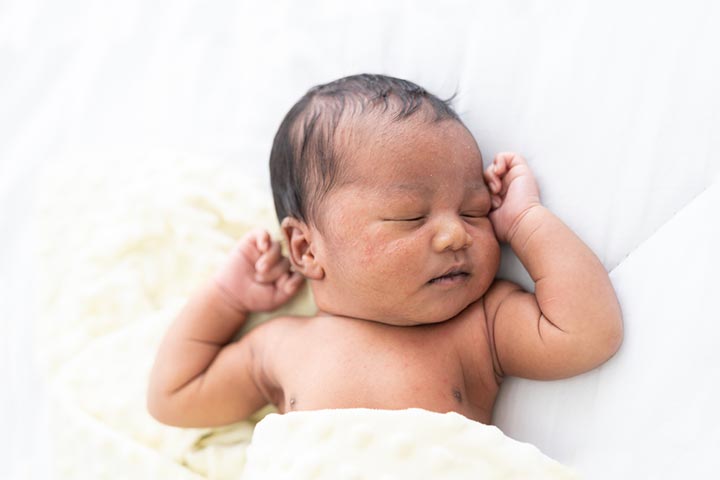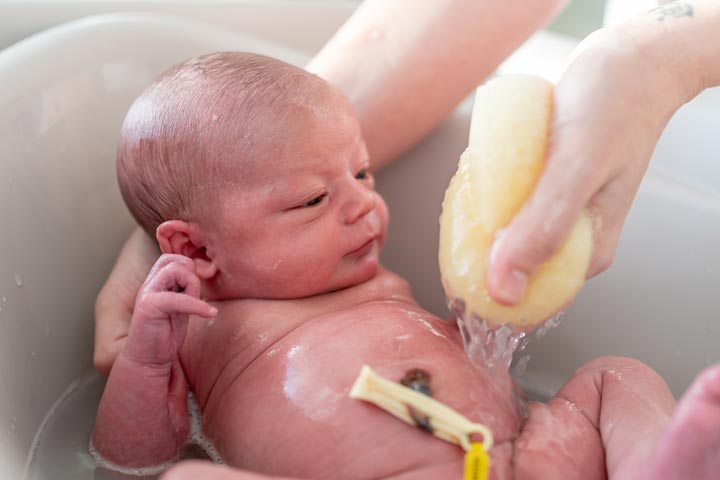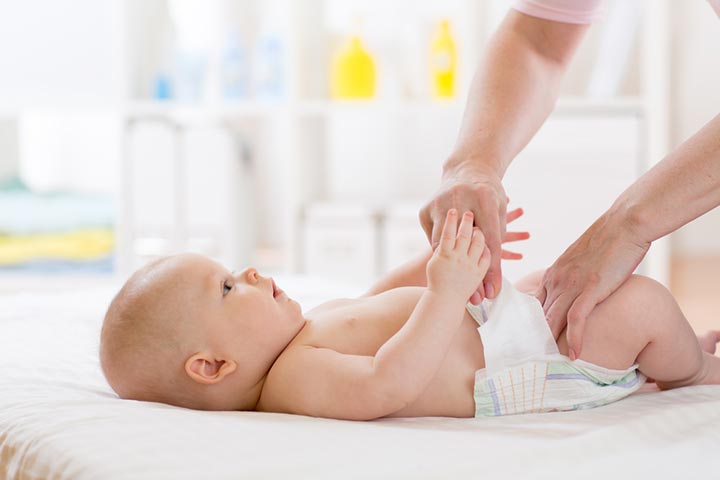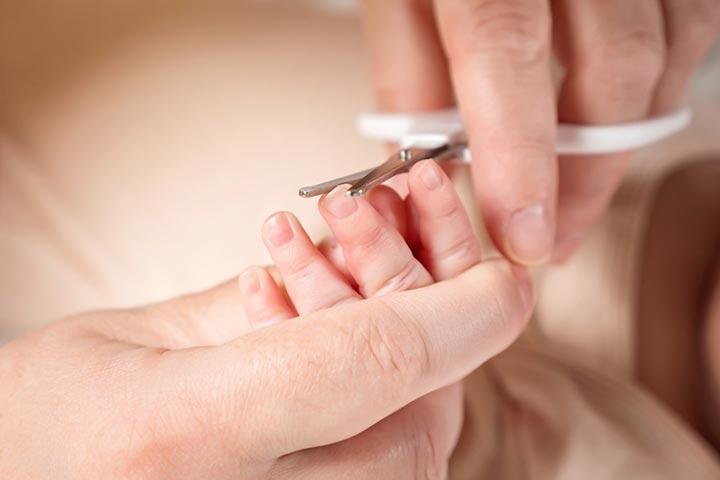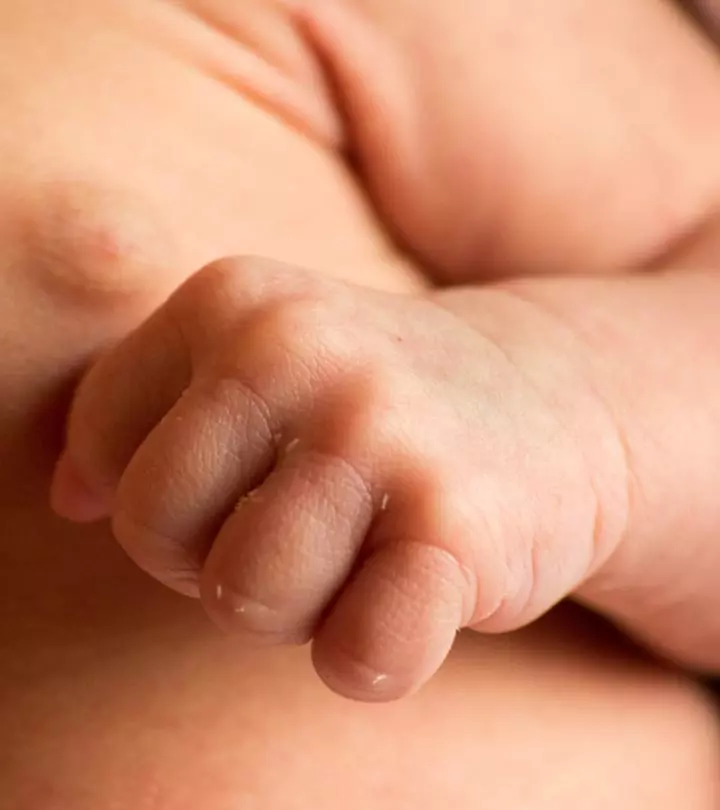
Image: Shutterstock
As a parent, ensuring the well-being of your baby is of paramount importance. From feeding and sleep schedules to hygiene and overall health, there are numerous aspects to consider. One crucial area that often goes unnoticed is the care of your baby’s delicate skin. Understanding how to properly care for and protect your baby’s skin can help prevent common issues and promote healthy development. To shed light on this topic, we’ve gathered insights from pediatricians who share some important things they wish parents knew about their baby’s skin. Read on to know all that there is to know about taking care of your baby’s skin and maintaining their skin hygiene.
Some Basic Facts About A Child’s Skin:
Image: Shutterstock
Knowing about a child’s body is an endless task. No matter how much you read up, there will always be things you will come to know later or in the process of nurturing them. However, to make your journey a bit easier, here are some basic facts about the skin of your child that you should know.
1. A Baby’s Skin Is Very Delicate
It is important to remember that babies have extremely delicate and sensitive skin as compared to adults. Their skin barrier does not mature till they are two to four years of age and thus remains prone to getting rashes and infection. It is therefore necessary to ensure that your baby does not come in contact with any harmful materials that might affect their gentle skin. Some babies have more sensitive skin than others and using doctor recommended moisturizer for them would be a good idea. Keeping a baby’s skin hydrated and well moisturized is extremely important to ensure their good health.
2. Bathing A Baby Everyday Is Not Important
Image: Shutterstock
Another common concern for parents is when to give their children baths. Since newborns spend most of their time inside within a clean atmosphere, it is not important to bathe them daily. Giving them daily baths might hamper the moisture quotient of their skin and make it dry. The best alternative is sponging them with a towel soaked in lukewarm water. This will ensure that all the dirt from the baby’s body is removed and yet the hydration remains the same.
3. Babies Need To Be Protected From The Sun
As already mentioned, babies have extremely sensitive skin. This makes them more susceptible to the harms of UV rays. If your baby is way too exposed to the sun, that might end up giving them painful rashes and other skin infections. It is thus important to keep your baby indoors, especially during the summer months so that issues like sunburns do not occur.
4. Babies Need Frequent Diaper Changes
Image: Shutterstock
Getting a diaper rash is extremely common among babies. It is therefore important that parents change their diapers at regular intervals rather than keeping them on for longer periods. Instead of waiting for your baby to cry out loud and then change their diaper, you can keep an eye on them so that whenever it is wet, you can change it. Pediatricians emphasize the importance of frequent diaper changes to keep your baby’s skin clean and dry. Leaving a soiled diaper on for an extended period can lead to irritation and rash formation. When changing diapers, use mild wipes or simply rinse with warm water and pat dry gently. Applying a thin layer of zinc oxide or petroleum jelly can act as a protective barrier against moisture.
5. Parents Need To Be Aware Of Certain Skin Conditions
It’s important for parents to be familiar with common skin conditions that can affect infants. Pediatricians often come across issues like eczema, cradle cap, and baby acne. Eczema causes dry, and itchy patches, and can be managed with regular moisturizing and by avoiding triggers such as harsh detergents or certain fabrics. Cradle cap, a form of dandruff, can be gently massaged with baby oil or petroleum jelly before washing. Baby acne, which resembles small red bumps, is harmless and typically resolves on its own without treatment. However, it’s always a good idea to consult your pediatrician if you have concerns about your baby’s skin.
6. Babies Need To Have Their Nails Trimmed
Image: Shutterstock
Parents often do not know how sharp their baby’s nails can be and might inadvertently scratch their own skin. That is why pediatricians advise trimming their nails regularly to prevent accidental injuries. As a parent, you can use baby nail clippers or blunt scissors designed for infants, and ensure good lighting to avoid accidents.
We hope these points will help you understand how you can take better care of your baby’s skin. However, in cases of emergencies or doubts, it is always better to consult your pediatrician for the best help. Do you have anything more that you would want to add to the list? Let us know in the comment section!

